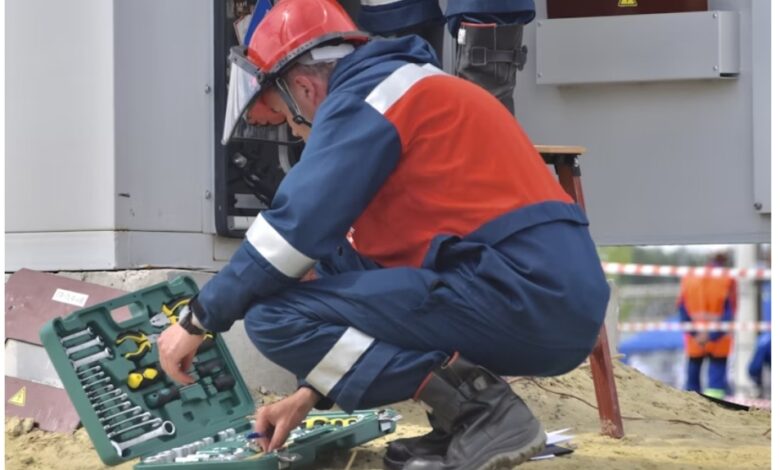Understanding Maintenance Needs for Diesel and Natural Gas Generators

Do you want your generator to run trouble-free for decades?
If so, you need to understand maintenance requirements.
Every business owner with backup power understands the importance of reliability. When the power goes out, you need your generator to perform. Period. Every time. It’s the ultimate test for your backup power system.
But too often, people focus on selecting the right generator at the time of purchase, then forget about maintenance until the first problem arises.
And that’s a mistake.
Diesel vs. Natural gas. It’s not a matter of preference. It’s a matter of performance, maintenance requirements, costs and long-term reliability. Getting the right information about these factors upfront can save you thousands of dollars and major headaches down the road.
Let’s dig in.
What You’ll Learn
- How Diesel and Natural Gas Generators Differ
- Maintenance Schedules That Work
- Cost Breakdown: What To Expect To Pay
- Making The Right Decision for Your Business
How Diesel and Natural Gas Generators Differ
First, before we get into maintenance, let’s review some key differences between diesel and natural gas generators.
Diesel and natural gas fuel types result in complete internal combustion system operation differences. This means different maintenance requirements, costs and long-term power system reliability. Diesel generators use compression ignition, while natural gas units operate using spark ignition, just like your car’s engine. Diesel units require less electrical components, while natural gas generators have more mechanical components in the engine.
Here’s why that matters:
Diesel generators are robust and provide a high power density. The units are the workhorse of the generator industry and can handle high demand, heavy load starts, frequent startups, and difficult environments.
Natural gas generators burn cleaner and link directly to gas pipelines. These units eliminate the fuel storage requirements associated with diesel units.
But those differences result in unique maintenance requirements for each generator type.
Diesel units need more frequent oil changes and filter replacements than natural gas. Diesel fuel is more corrosive, creating more engine build-up and residue. This results in stricter maintenance schedules and more frequent system cleanings.
Natural gas engines are generally cleaner burning, producing 30% less carbon dioxide than diesel fuel. This means less carbon build-up in your engine and fewer overall engine deposits.
In short, less build-up means less maintenance… But it’s not the whole story.
Maintenance Schedules That Work
Now for the big question:
What’s the main maintenance difference between diesel and natural gas generators?
Frequency and complexity.
Diesel Generator Maintenance
Diesel generators require more frequent maintenance. You’ll be looking at a service every 250-500 hours of operation or once per year minimum. Diesel service tasks include:
- Oil and filter changes (minimum once per year)
- Fuel filter replacements
- Coolant system check
- Belts and hoses inspection
- Battery replacements (every 2-3 years)
- Injector cleaning
Diesel engines have no spark plugs, which is a plus. But the trade-off is a complex fuel system. Injectors need periodic attention, and diesel fuel can deteriorate if left in storage for long periods, causing clogging and engine performance issues.
Here’s the kicker…
If you operate diesel generators at low loads frequently, you can expect more maintenance. Low load operation causes incomplete combustion. The result is wet stacking, carbon build-up, and potential long-term engine damage.
Natural Gas Generator Maintenance
Natural gas generators need servicing after 100 hours of use or at minimum once annually. Servicing includes:
- Spark plug replacement (only for natural gas units)
- Air-fuel mixture system check
- Oil changes, less frequently than for diesel
- Valve adjustments
- Ignition system maintenance
- Coolant and filter changes
Natural gas engines provide more extended periods between servicing requirements. Some units provide up to double the maintenance cycle of diesel engines. But they do require specialized components with expert knowledge for repair.
The good news?
Natural gas systems handle low-load operation without penalty from the engine. This makes these units ideal for standby applications where the generator might never run at full capacity.
Cost Breakdown: What You’ll Really Pay
So, how much is this going to cost?
Maintenance costs can vary widely between the two types of fuel. Industry data show diesel generators require $0.005-$0.010 per kWh in operations and maintenance costs. Natural gas units cost slightly more at $0.007-$0.015 per kWh.
Hold on… Natural gas is more expensive to maintain?
Yes and no. The cost per kWh may be slightly higher. But natural gas generators will likely run many more hours between major services. You can use a simple estimation of $500 fixed plus $1.00/kW for maintenance costing purposes.
But what most people miss is…
Diesel maintenance costs increase when you include fuel deterioration. Diesel fuel should be inspected once per year and replaced every two years to prevent engine damage. That’s additional downtime and cost.
Natural gas connects directly to pipelines and doesn’t require any fuel storage. There are no deterioration issues or delivery costs draining your budget.
Hidden Costs To Consider
In addition to regular maintenance, there are other factors to consider:
Diesel generators require:
- Fuel storage tank maintenance
- Fuel testing and polishing
- Higher emissions control equipment
- More frequent filter changes
Natural gas generator servicing requires:
- Spark plug replacements (can be expensive)
- More complex ignition system repairs
- Specialized technicians with training
- Pipeline connection maintenance
Neither option is free of maintenance requirements. But by understanding these up front, you can avoid unpleasant budget surprises later.
Making The Smart Choice For Your Business
Here’s the bottom line:
There’s no “right” generator. Only the right generator for your situation. Diesel generators are better in heavy-duty, remote locations, and where on-site fuel storage is required or available. The systems are battle tested workhorses with an average lifespan of 20-30 years with proper maintenance.
Natural gas generators work best in urban areas with pipeline access. These generators are cleaner, quieter, and handle long-term continuous operation better. These units also last 25-30 years with good care.
Ask yourself these questions:
- Do you have natural gas pipeline access? If so, natural gas may provide savings on maintenance associated with fuel storage and delivery requirements.
- Will you be running at varying loads? Natural gas engines operate without issue at low-load operation, while diesel units suffer from wet stacking.
- Do you have emission standards to meet? Natural gas burns far cleaner than diesel. This may be a concern in areas with strict air quality regulations.
- How critical is fast start-up? Diesel generators start more quickly and can provide power more rapidly during an outage.
The fact is diesel and natural gas generators both require regular professional maintenance to provide reliable backup power when you need it. Never skip or delay maintenance to save money. The practice always leads to increased costs and even catastrophic system failures during power outages.
Final Thoughts
Maintenance is not an optional expense. It’s the difference between a generator that works when you need it and an expensive paperweight.
Both diesel and natural gas generators can provide decades of reliable backup power with the right maintenance. Diesel units require more frequent attention, but have less complex fuel systems. Natural gas generators burn cleaner, but require more specialized ignition system maintenance.
Your maintenance strategy should be based on the type of generator, how you use it, and your operational needs. Budget for regular professional service, not just emergency repairs. The money invested in preventive maintenance is repaid many times over by the resulting system reliability and longevity.
Key takeaways:
- Schedule maintenance based on hours of operation AND calendar time
- Only use qualified technicians familiar with your generator type
- Keep good, detailed maintenance records
- Never skip scheduled maintenance to save money
- Plan for maintenance AND component replacements
Choose the best generator for your needs, then keep it running right. That’s how you ensure reliable backup power for the long haul.



